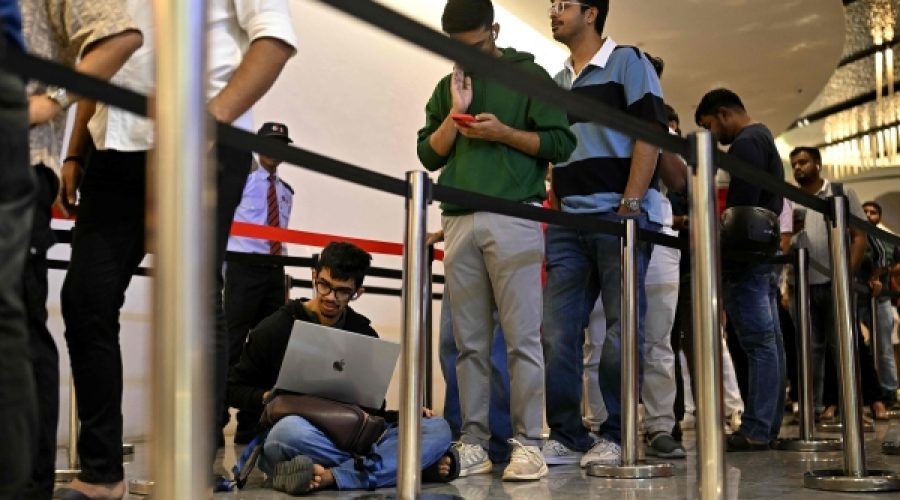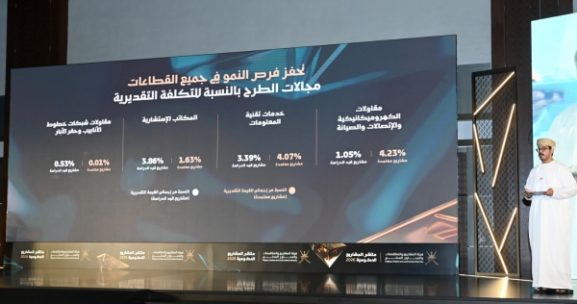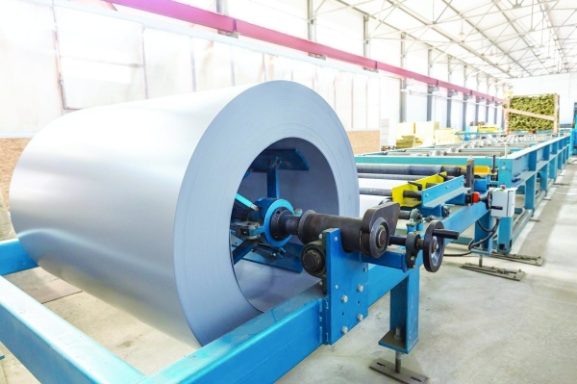اتجاهات تأشيرة H-1B: ما الذي يعنيه وجود أكثر من 70% من المستفيدين الهنود للاستثمار التجاري والمواهب في عُمان
أعلن الرئيس دونالد ترامب يوم الجمعة أن الحكومة الفيدرالية ستفرض رسومًا سنوية قدرها 100,000 دولار أمريكي على تأشيرات H-1B الممنوحة للعمال الأجانب المهرة، مما يُمثل إصلاحًا جذريًا لبرنامج تأشيرات العمل المؤقتة في الولايات المتحدة. ومن المرجح أن تؤثر هذه الخطوة بشكل كبير على قطاع التكنولوجيا، الذي يعتمد بشكل كبير على العمال المهرة من الهند والصين.
منذ توليه منصبه في يناير، شنّ ترامب حملةً واسعةً على الهجرة، شملت إجراءاتٍ لتقييد بعض أنواع الهجرة القانونية. ويُمثّل إصلاح برنامج تأشيرات H-1B أبرز جهود الإدارة حتى الآن لإعادة هيكلة تأشيرات العمل المؤقتة. وقد أكّد وزير التجارة هوارد لوتنيك على هدف "تدريب الأمريكيين" وتثبيط توظيف العمال الأجانب الذين "يأخذون وظائفنا".
أثار هذا الإعلان قلقًا في قطاع التكنولوجيا، الذي ساهم بملايين الدولارات في حملة ترامب. نصحت شركات كبرى، مثل مايكروسوفت وجي بي مورغان وأمازون، حاملي تأشيرات H-1B بالبقاء في الولايات المتحدة، وحثت المقيمين خارج البلاد على العودة قبل سريان الرسوم الجديدة منتصف ليل السبت (الرابعة صباحًا بتوقيت غرينتش يوم الأحد). وحذر أوغليتري ديكينز، المستشار القانوني لجي بي مورغان، الموظفين من السفر الدولي حتى صدور توجيهات إضافية.
يُجادل منتقدو برنامج H-1B، بمن فيهم العديد من العاملين الأمريكيين في قطاع التكنولوجيا، بأنه يُضعف الأجور ويُهمّش المواهب المحلية. في المقابل، يُصرّ مؤيدوه، بمن فيهم الرئيس التنفيذي لشركة تيسلا، إيلون ماسك، وهو نفسه يحمل تأشيرة H-1B، على أن البرنامج ضروري لسدّ فجوات المواهب والحفاظ على القدرة التنافسية للولايات المتحدة. وقد سلّط الأمر التنفيذي الذي وقّعه ترامب الضوء على حالات استغلّ فيها أصحاب العمل البرنامج لخفض الأجور، مما أضرّ بالعمال الأمريكيين.
تُظهِر البيانات أن عدد العمال الأجانب في مجالات العلوم والتكنولوجيا والهندسة والرياضيات (STEM) في الولايات المتحدة تضاعف بأكثر من الضعف بين عامي 2000 و2019، ليصل إلى ما يقرب من 2.5 مليون، حتى مع زيادة التوظيف الإجمالي في مجالات العلوم والتكنولوجيا والهندسة والرياضيات بنحو 44.51 تريليون دولار فقط.
يحذر الخبراء من أن هذه الزيادة في الرسوم قد تُثني المواهب العالمية. غرّدت ديدي داس، الشريكة في شركة رأس المال الاستثماري مينلو فينتشرز، قائلةً إن هذه السياسة "تُثبّط استقطاب أذكى المواهب في العالم" وتُخاطر بتقويض الابتكار والنمو الاقتصادي في الولايات المتحدة. وقد تُثقل هذه الزيادة في التكلفة كاهل شركات التكنولوجيا الصغيرة والشركات الناشئة بشكل خاص. ولا تزال تفاصيل إدارة الرسوم قيد الدراسة، على الرغم من أن لوتنيك صرّح بأن الرسوم ستُطبّق سنويًا على مدار مدة التأشيرة البالغة ثلاث سنوات. ويُحذّر المحللون من أن الشركات قد تُحوّل أعمالها عالية القيمة إلى الخارج، مما يُضعف موقف الولايات المتحدة في سباق الذكاء الاصطناعي التنافسي مع الصين.
كانت الهند أكبر متلقٍّ لتأشيرات H-1B العام الماضي، بواقع 71%، تليها الصين بـ 11.7%. في عام 2025، حصلت شركات مثل أمازون ومايكروسوفت وميتا بلاتفورمز على آلاف الموافقات على تأشيرات H-1B. صرّح لوتنيك بأن الشركات الكبرى تدعم الرسوم السنوية الجديدة البالغة $، مؤكدًا أنه تم التشاور معها.
وفي أعقاب الإعلان، انخفضت أسهم شركة خدمات تكنولوجيا المعلومات Cognizant، التي توظف العديد من العمال الحاصلين على تأشيرة H-1B، بنحو 5%، في حين شهدت شركتا التكنولوجيا الهنديتان Infosys وWipro انخفاضات تتراوح بين 2% و5%.
شكك خبراء قانونيون في قانونية هذه الرسوم. وأشار آرون ريشلين-ميلنيك، مدير السياسات في مجلس الهجرة الأمريكي، إلى أن الكونغرس سمح بفرض رسوم لتغطية تكاليف معالجة الطلبات فقط، وليس الغرامات العقابية. كما حذّر المسؤولان السابقان دوغ راند وتوم جاويتز من أن هذه السياسة قد تواجه تحديات قانونية، واصفين إياها بإساءة استخدام السلطة التنظيمية.
يُصدر برنامج H-1B سنويًا 65,000 تأشيرة للعمال الأجانب المتخصصين، بالإضافة إلى 20,000 تأشيرة إضافية لحاملي الشهادات العليا. عادةً ما يتحمل أصحاب العمل جميع الرسوم المرتبطة تقريبًا. تُمنح التأشيرات لمدة تتراوح بين ثلاث وست سنوات.
وفي يوم الجمعة أيضًا، وقع ترامب على أمر تنفيذي يقضي بإنشاء مسار "بطاقة الذهب $1 مليون" للحصول على الإقامة الدائمة في الولايات المتحدة للأفراد القادرين على تحمل الرسوم، مما أثار المزيد من المخاوف بشأن قانونية السياسة ونزاهتها.
تُنهي هذه الرسوم الجديدة جزئيًا جدلًا داخل التيار المحافظ حول برنامج تأشيرات H-1B. يُجادل المتشددون في مجال الهجرة بأنه يضر بالعمال الأمريكيين بسماحه للشركات بتوظيف عمال أجانب بأجور أقل، بينما يُؤكد قادة الأعمال في قطاع التكنولوجيا على دور البرنامج في الحفاظ على القدرة التنافسية للولايات المتحدة. بهذا الإعلان، انحاز الرئيس ترامب إلى الساعين إلى تشديد إجراءات الحصول على التأشيرات.
تحليل خاص من عمانت | تصفح سوق عُمان
إن قرار الولايات المتحدة بفرض رسوم سنوية قدرها $100,000 على تأشيرات H-1B يشير إلى تشديد محتمل للوصول إلى المواهب التقنية العالمية، مما قد يُعيق شركات التكنولوجيا التي تعتمد بشكل كبير على العمالة الأجنبية الماهرة، بما في ذلك العمالة من الهند والصين. بالنسبة للشركات في عُمان، يُنشئ هذا كلا من فرصة لجذب المواهب ذات المهارات العالية والتي قد يتم إزاحتها من السوق الأمريكية وخطر زيادة المنافسة من الشركات الأمريكية التي تُجبر على نقل أعمالها إلى الخارج أو تقليص جهود الابتكار. ينبغي على المستثمرين ورواد الأعمال الأذكياء في عُمان وينبغي لنا أن نفكر في الاستفادة من هذا التحول لتعزيز النظم البيئية التقنية المحلية وتنمية المواهب للاستفادة من إعادة توزيع المواهب العالمية.



